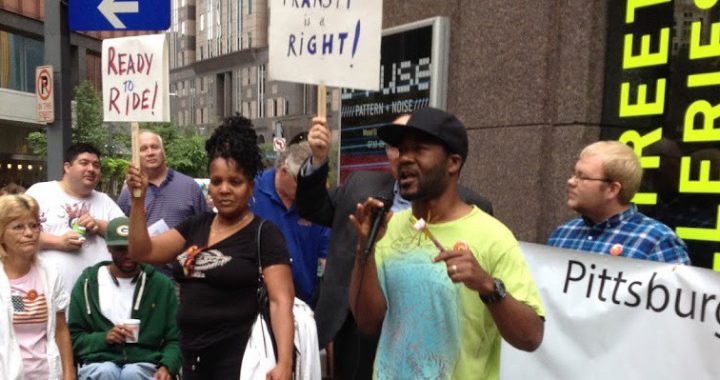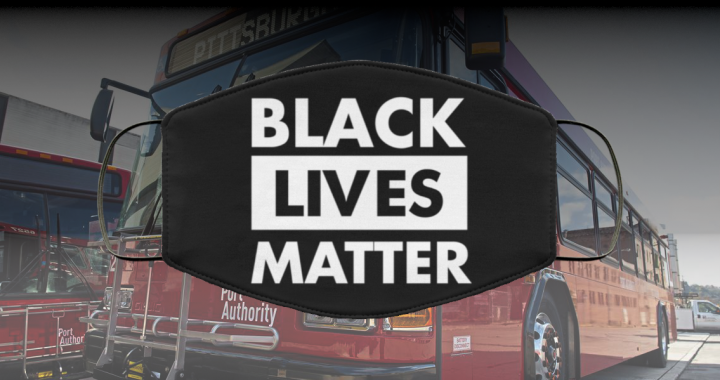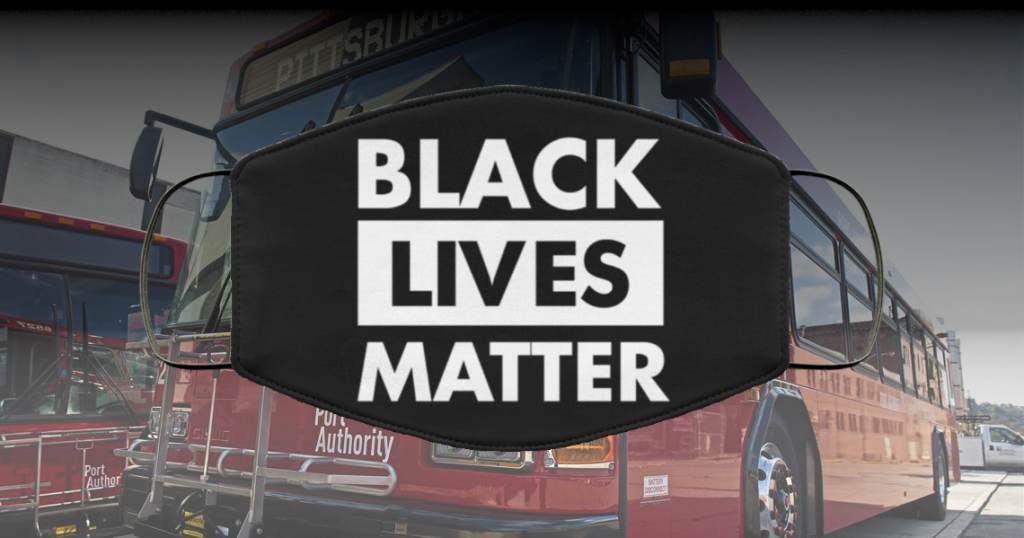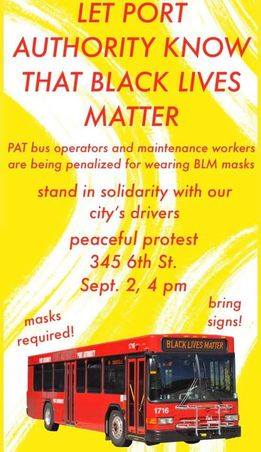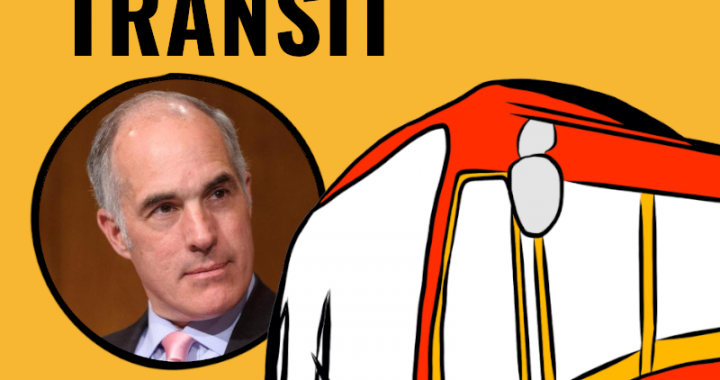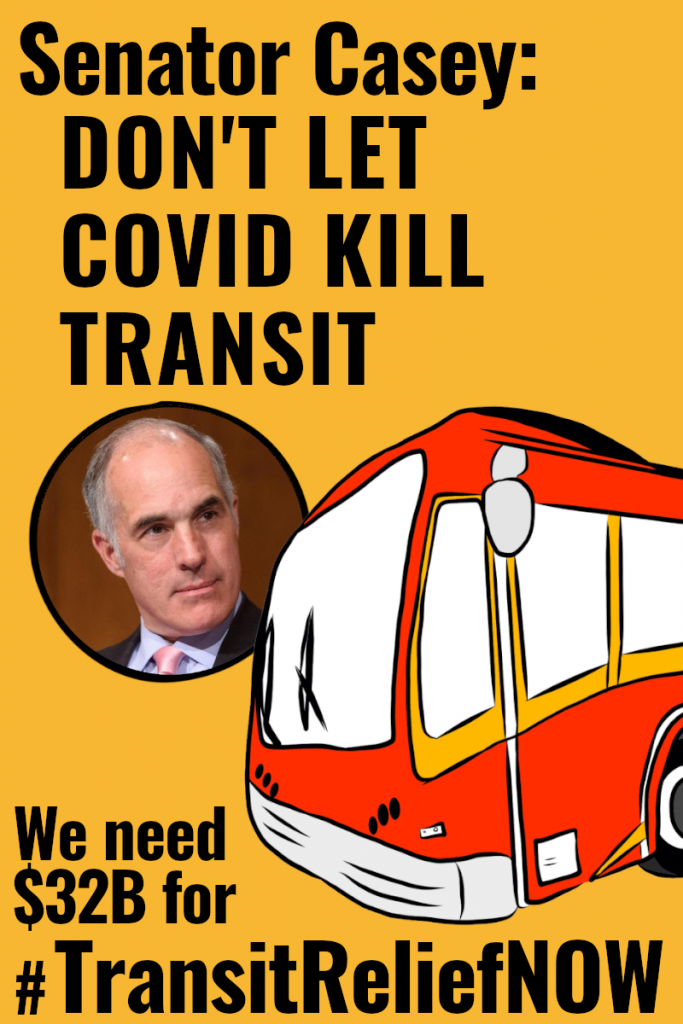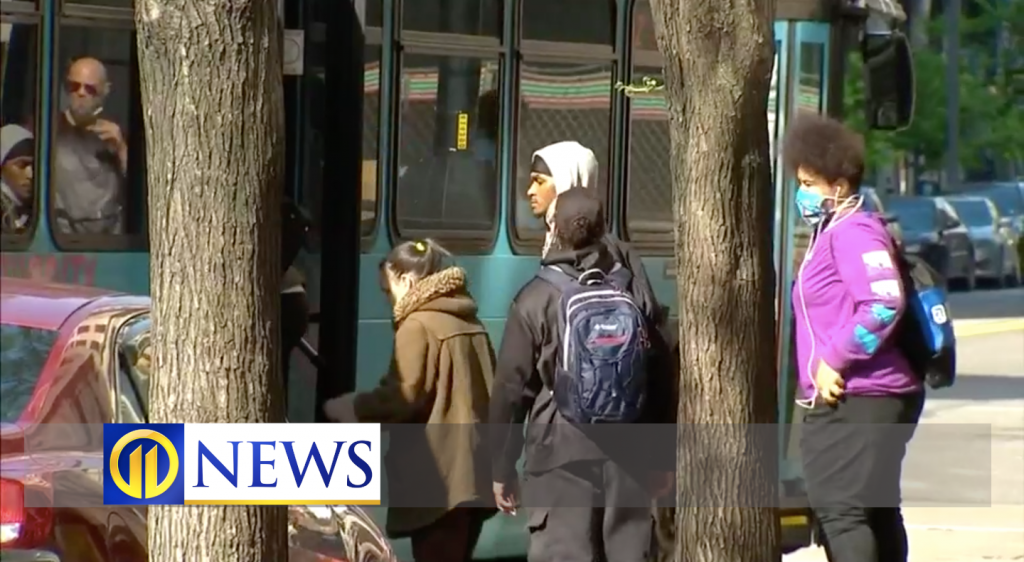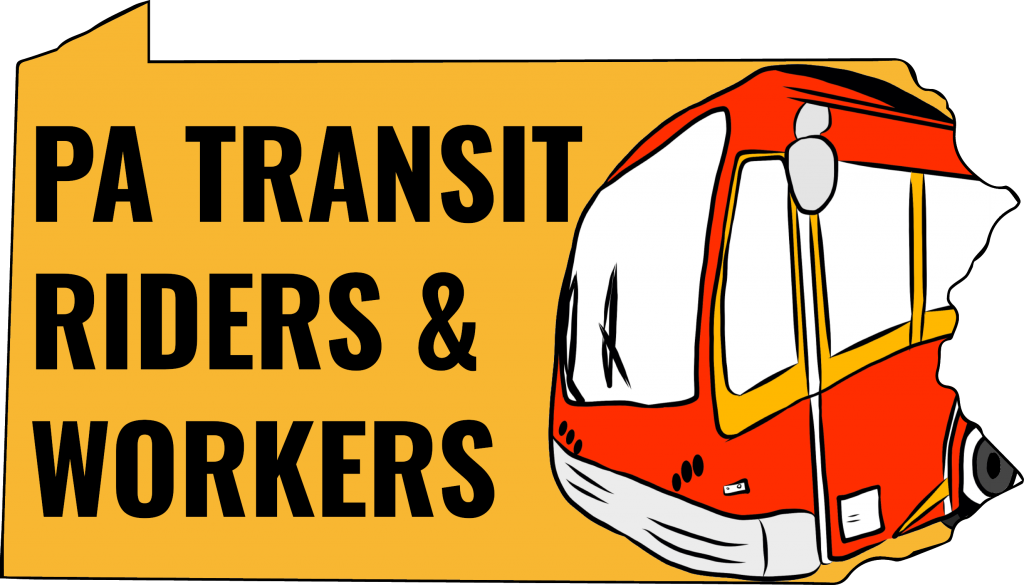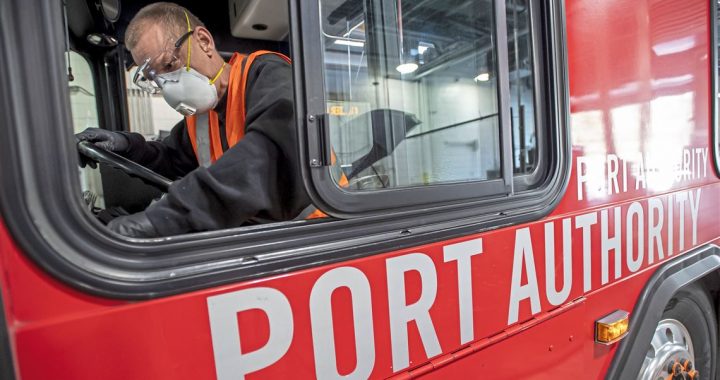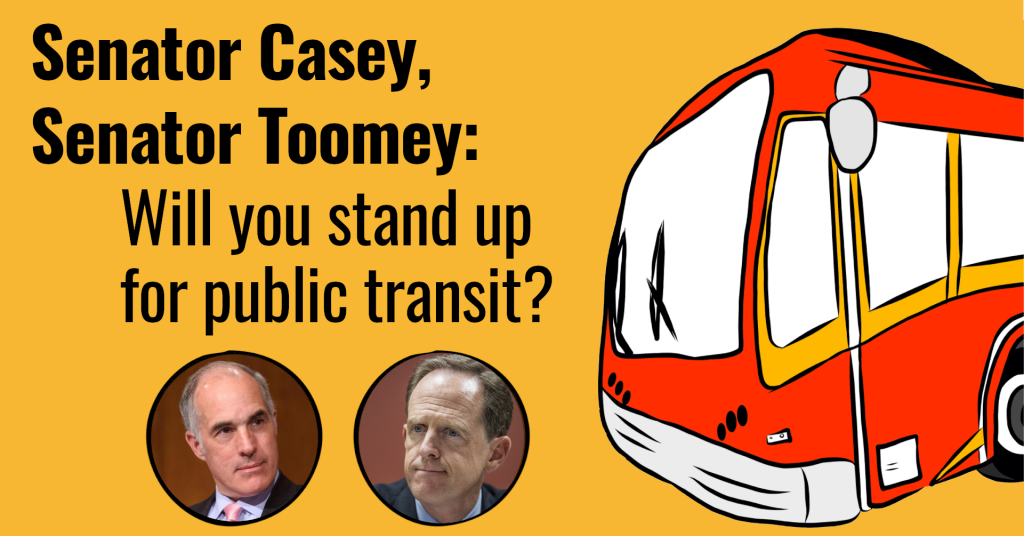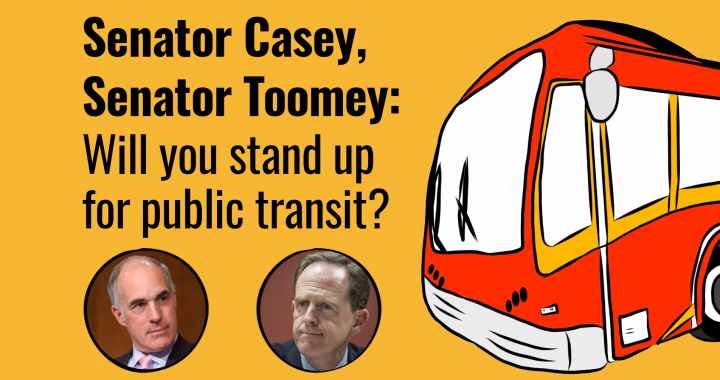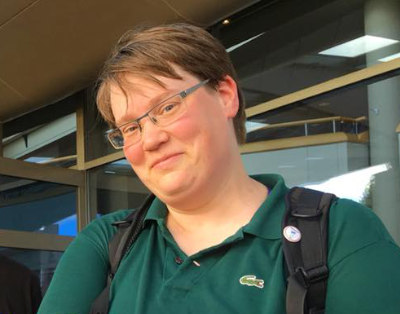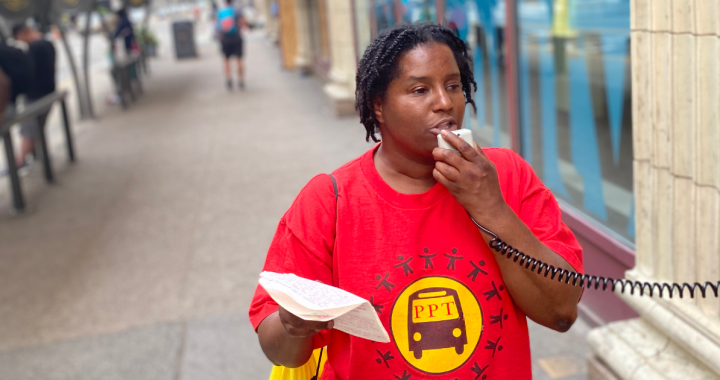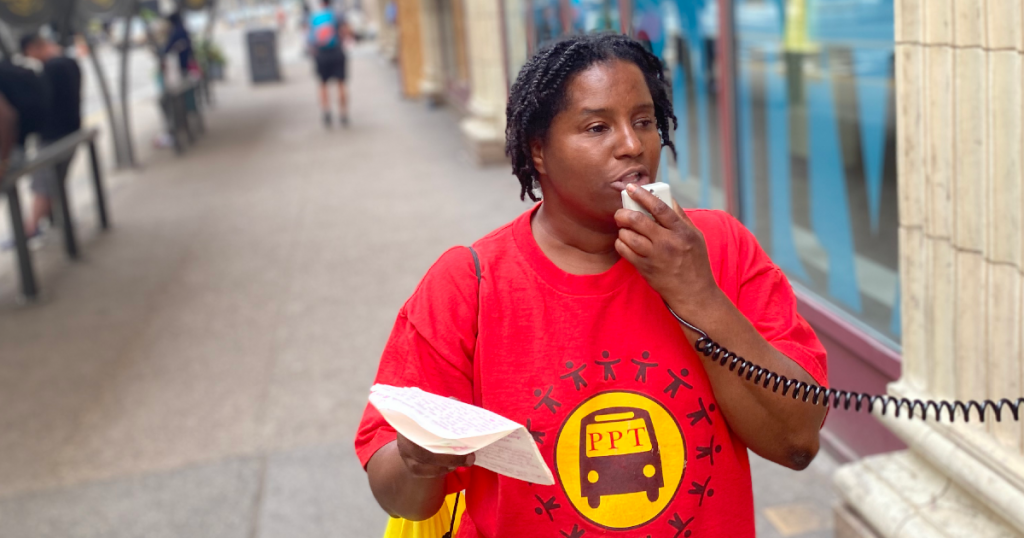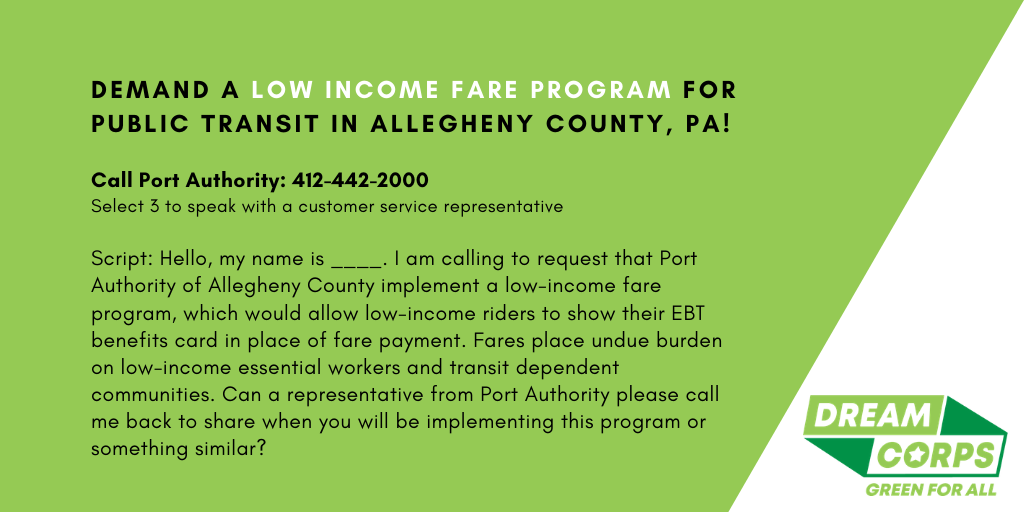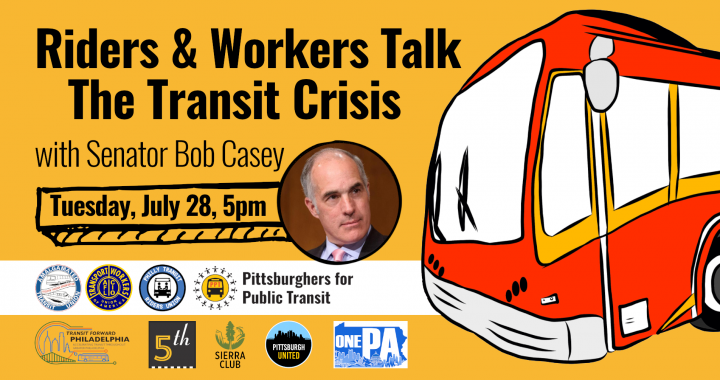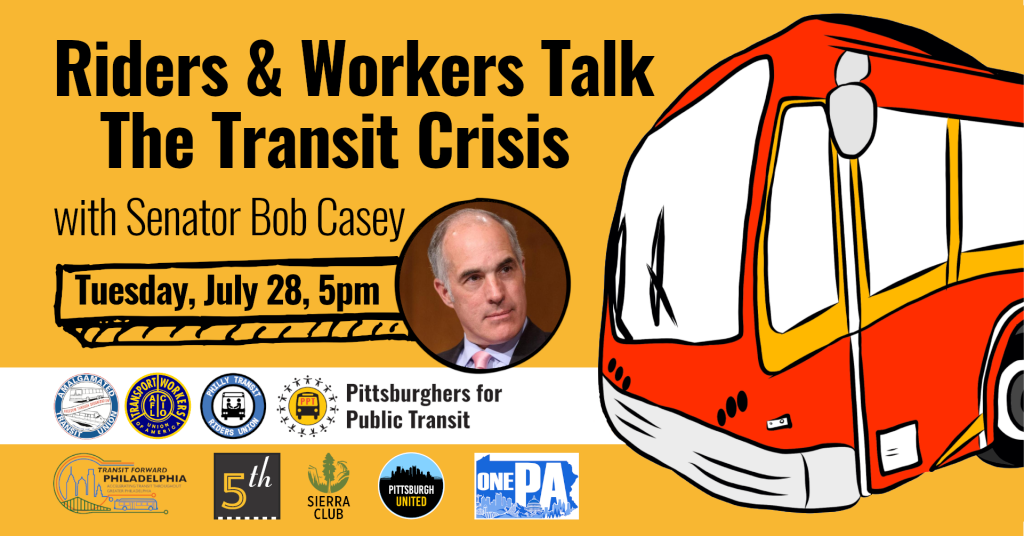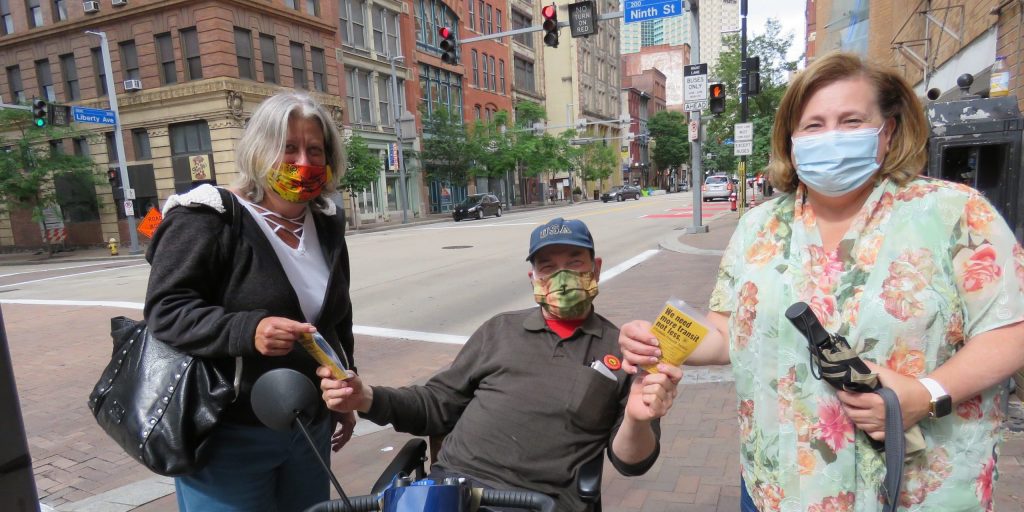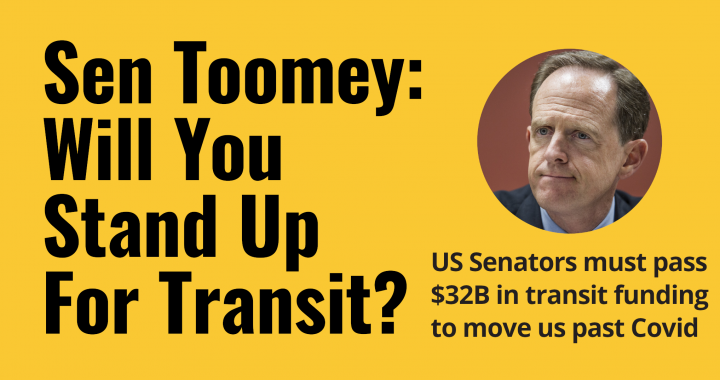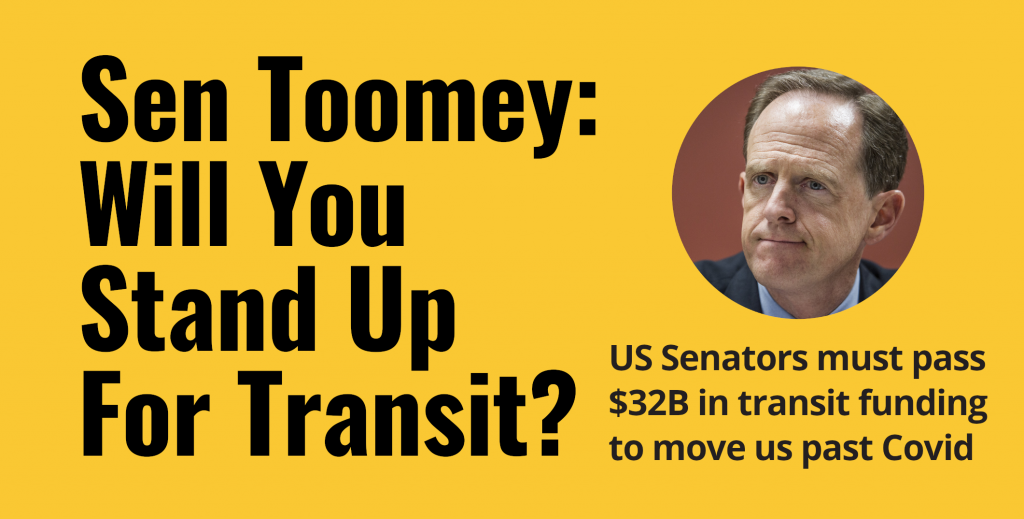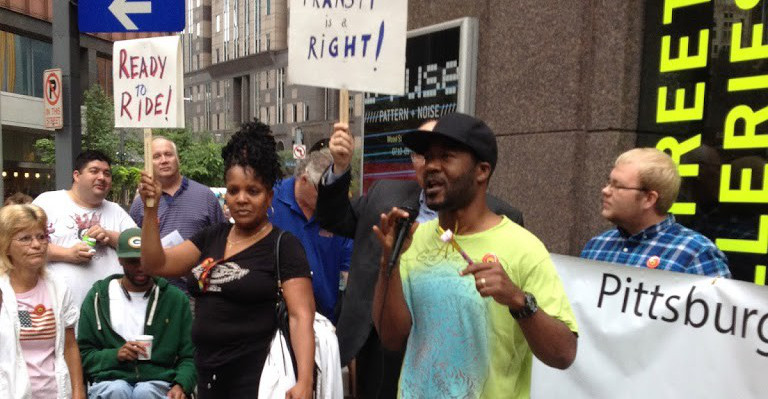
The Port Authority Board of Directors has a public engagement problem.
The Port Authority’s Board of Directors is the Agency’s highest decision-making body. They meet monthly (with the exception of August) to make major decisions about the agency’s finances, governance, performance oversight, technology, planning, and stakeholder engagement. (…yes, pretty much everything that happens at Port Authority must be set in motion by the Board of Directors.)
The Board meetings are open opportunities for the public to give input and feedback to the board. This is a vital component of operations for any public agency: the public must be part of the conversation about the decisions these public servants are making.
However, without PPT’s work bringing riders to the Board of Director’s table, would you want to take a guess at how many people have given public comment to the board in 2020? The answer is 2.
Without PPT’s efforts, Port Authority’s Board of Directors would have only heard from 2 people in 2020, the year that has devastated transit riders and the transit system (one a paid staff member of a local community group and the other a retired Port Authority Employee). This is unacceptable for a Public Transit Authority that carried over 200,000 riders/day before the pandemic, and nearly 75,000 riders/day since COVID.
The Port Authority needs to alter its approach on how it conducts its Board meetings if it wants to measure up to peer agencies and its own claimed value of public engagement. Following a big mobilization of riders that PPT organized to speak to the board about the effects of COVID-19 on transit, PPT worked with riders to build this list of recommendations for Port Authority’s decision-making. Many of these practices are in use by other public agencies in Allegheny County. Riders are experts in transit, and can contribute to building a transit system that is truly responsive to everyone’s needs.
PPT Recommendations for Improving Port Authority’s Board Engagement Policies // Drafted June-September 2020
Promotion & Accessibility
- Information about the upcoming meetings and the details for registration to speak should be shared monthly via the Port Authority social media outlets. This information should also be advertised on transit vehicles. This should include accessibility information and contact info for requesting accommodations.
- There is currently no information on the online registration pages providing contact information or steps to request accommodations. A contact number, access provisions, and a space for attendees to specify other access needs.
- Resource: See the ADA Tool Kit for Local and State Governments on the obligation to provide notice on the public’s rights under the ADA.
- Port Authority should have closed captioning on the video, and the ability to have ASL video interpretation and audio interpretation in other languages. This should be explicitly publicized on all media advertising Board meetings along with contact information to request additional accommodations.
- Best Practice: Tri-County Metropolitan Transportation District of Oregon (TriMet) provides meeting materials in alternative formats, sign language interpretation or other communication aids at meetings upon request at least 48 hours in advance of a meeting.
- The Board meeting should be streamed online in real-time via social media and on the Port Authority website.
- Best Practice: Los Angeles County Metropolitan Transportation Authority (METRO) live streams meetings on its website and allows online public comment as the meeting is progressing.
- Best Practice: Southwest Ohio Regional Transit Authority (SORTA), Greater Cleveland Regional Transit Authority (RTA), and Chicago Transit Authority (CTA) livestream their meetings to facebook, youtube, and their websites.
- Avenues other than Board meetings should be available for riders to contact the Board members.
- Best Practice: San Francisco Municipal Transportation Agency that operates Muni has a phone number and mailing address listed on the website to contact the office of the Board of Directors. In addition, the public can contact the Board via an email address provided on the website regarding items expected to be on the Board’s agenda.
Scheduling & Attendance
- At least one Board Meeting per quarter should be held after regular work hours to enable robust public participation.
- Best Practice: SORTA organizes Board Meetings at 8:30 a.m. or 6:00 p.m as per a fixed schedule to allow for greater participation.
- There should only be one form for signing up to attend and to give testimony. It should be displayed prominently on the Port Authority’s homepage. Registrants should also receive a confirmation email so that they are certain that they have signed up correctly by the deadline.
- Best Practice: Due to COVID, Southeastern Pennsylvania Transportation Authority (SEPTA) is posting Webex link and call-in information on the website for virtual meetings along with the agenda for the Board Committee and Board meetings. Public comments can be made via telephone or email prior to meeting. The registration link for attending provides an option for either attending the meeting or providing a testimony.
- The public should be able to register to attend and to speak through the Port Authority customer service line. The Port Authority customer service could simply fill out the online registration form on the behalf of the caller.
- Best practice: Due to COVID, Metropolitan Transportation Authority (MTA) is allowing the public to register via an online form and phone to provide pre-recorded comments. Once registered MTA provides details about how and when to record the comments. Thirty minutes of comments are played at the beginning of meetings. All comments are delivered to the MTA Board.
Public Comment & Participation
- Shorten and/or eliminate the pre-registration requirement for public comment. Currently, the only way for the public to speak their comment to the board is to register to speak via a unique link on the Port Authority’s website 5-business days in advance of the Board Meeting, and then attend that meeting the 4th Friday of the month at 9:30am to await the public comment period at the end of the meeting. This is a very high burden for public agencies both locally and nationally and must be changed to allow greater public participation.
- Best Practice: Pittsburgh City Council allows citizens 3-minutes of public comment if they register ahead of the meeting, or 1-minutes of comment to anyone in attendance as time allows.
- Best Practice: Public can make comments at the Central Puget Sound Regional Transit Authority (Sound Transit) Board meetings by signing up prior to the start of the meeting as long as the items are on that day’s agenda for final action. Written comments not related to specific agenda items can be placed in a general comments tray available in the Boardroom.
- People should be able to submit written testimony and video in advance of the meeting, which will be read to the Board and recorded in the notes.
- Best practice: Due to COVID, Sound Transit is asking public comments to be sent via email. Comments received up to one hour before the meeting will be provided to Board members electronically during the meeting. Comments received after that deadline will be provided to Board members after the meeting.
- Best Practice: Due to COVID, the Washington Metropolitan Area Transit Authority (WMATA) is allowing comments via email, phone, and video selfie that have to be submitted 24 hours in advance of a Board Meeting.
- Best Practice: The SEPTA board has coordinated with the Philly Transit Riders Union to allow the Union to submit video testimony prior to the meeting that is then played for the board and recorded in the meeting notes. (Click to 28:10 of this Periscope video to see how this worked at their Operations Budget Hearings earlier this year)
- Public comment should be allowed at the beginning of Board Meetings & Board Committee meetings to allow for consideration of the issues being put before the Board.
- Best Practice: Numerous local public agencies hear public comment at the start of their agenda; Allegheny County Council, Allegheny County Housing Authority, Allegheny County Board of Health, Pittsburgh City Council, Pittsburgh Water and Sewer Authority, Urban Redevelopment Authority and many others.
- Best Practice: RTA Board of Trustee Meetings have public comments on agenda items prior to various committees providing their reports. At present, public comments happen through phone-in with no need for prior registration.
- Stakeholders should also be able to provide comments and ask clarifying questions at the Board Meetings and Board Committee Meetings.
- Best Practice: RTA Board of Trustees meetings allow the public to ask questions or make comments on non-agenda items at the end of the meeting. At present, comments happen through phone-in with no need for prior registration.
- If there is a petition with a significant number of signatures, the Port Authority Board should hold a public hearing specifically about the petition.
- Best Practice: City of Pittsburgh Public Hearing guidelines. A public hearing can be called on a topic with the signature of 25 residents. Article from The Incline about how to petition for a public hearing
- Rules and tips for giving public comments should be posted on the same page that you register, including information about the amount of permitted testimony time for individuals versus organizations. The Port Authority’s current Board Presentation Policy needs to be updated, as it includes dead links, and old, inaccurate information.
- Best practice: Sound Transit has Rules and Tips for public comments on the same page where information on public comments during Board meetings is provided.
- The Port Authority should remove the restriction that their current Board Presentation Policy places on the number of members from an organization who are allowed to address the board during a single meeting. A citizen may be a member of an organization, but they may not be speaking on the organization’s behalf.
Transparency, Accountability, & Rider Representation
- The Board should keep track of its progress towards addressing rider questions, comments, and concerns. This information should be publicly available and regularly reviewed by the Board.
- Board seats should be filled by people who are regular riders of the Port Authority system, some Board members should be entirely transit reliant.
- Best Practice: NJ Transit in 2018 updated its bylaws to expand the number of Board members from 8 to 13 to allow for a public member who must be an NJ Transit train, bus or light rail rider and four public members with transportation policy experience.
- Best Practice: New York State Senate passed legislation requiring transit authorities to seat at least two members who are entirely transit relient. The Assembly is considering similar legislation.
- Best Practice: The Metropolitan Council (which oversees Metro Transit in Minneapolis-St.Paul) has a Transportation Accessibility Advisory Committee. At least half of the committee members must be certified as being eligible for ADA paratransit and be active users of public transportation in the metro area.
- There should be a number of rider-elected seats on the Board to ensure that rider interests and perspectives are included in decision-making at our public transit agency.
- Best Practices: In California, both Bay Area Rapid Transit and Alameda-Contra Costa Transit District have Boards of Drectors that are entirely elected by residents of the areas that the transit systems serve.
- Best Practices: Just like on the Boards of Credit Unions, Co-Ops, and other private companies who have their Boards elected by its stakeholders, Port Authority must allow its “customers” a say in its leadership.
- There should be an annual published audit of transit usage by each Port Authority Board member, using the data from their CONNECT cards.
- Best practice: Board members of the MTA in New York City receive free transit cards and their usage is published every year.
- The Port Authority Board should work with TransitCenter to hold regular training and workshops for its members.
- Resource: “TransitCenter is working to make transit agencies more accountable, attuned to best practices, and responsive to rider needs.”
More reading about Transit Agency Board reform:
Mobility Lab’s “Transit boards should represent their biggest investors: riders”
TransitCenter’s “Who Rules Transit?”
